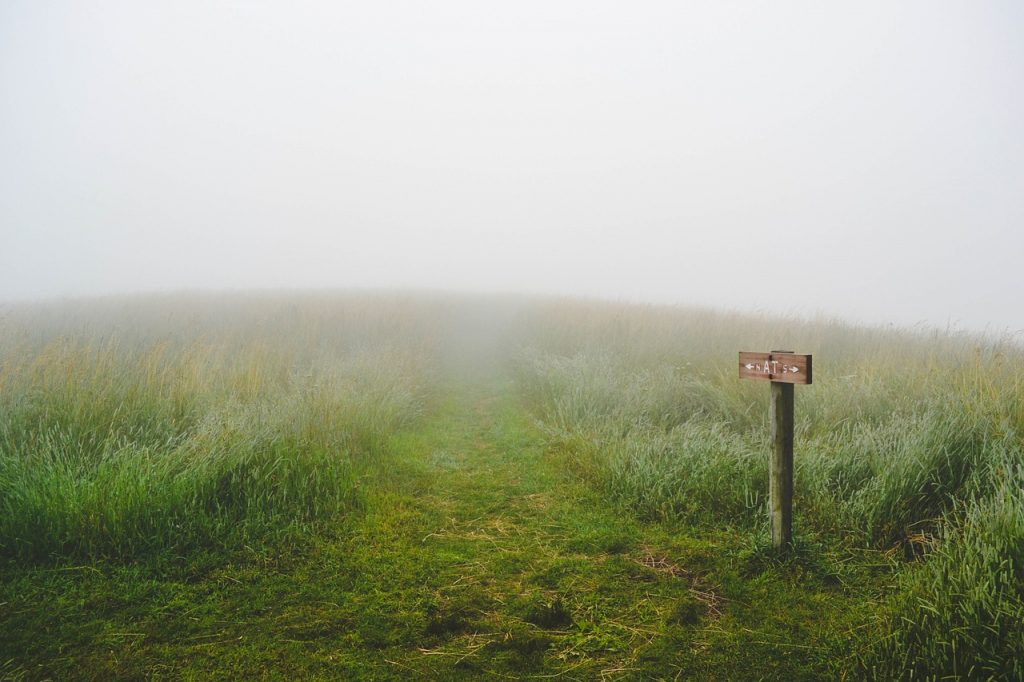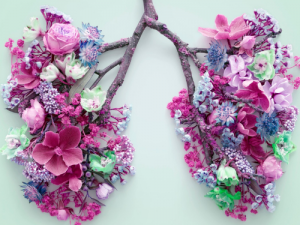
In the past week, several people from different areas of my life– a colleague, a relative and a client have all uttered the same phrase to me, “There we are.” Okay, I think to myself. There we are. But where is “there”? And, how did “we” get there together?
In his recently published first novel, “There There”, author Tommy Orange writes about disenfranchised Native Americans who travel across the United States to meet up at a Pow Wow in the Oakland, CA Coliseum. He gives the reader a hint at the meaning of the title by explaining that when Gertrude Stein returned to Oakland as an adult after growing up in Oakland in the early 1900’s, she described the city as having “no there, there”. The Oakland she’d grown up had changed so dramatically that the city she sentimentally remembered no longer existed. The “There we are” of Stein’s childhood had physically disappeared.
Orange gives an additional example of “There we are”; however, with a darker inference. In the song titled,” There, There” by Radiohead, Thom Yorke croons “Just ‘cause you feel it doesn’t mean it’s there. Just ‘cause you feel it, doesn’t mean it’s there.” This chorus is followed by lyrics stressing that there is always a siren singing us to shipwreck. Then a bold refrain warns us, “Don’t reach out, don’t reach out. Don’t reach out, don’t reach out.” Who hasn’t experienced a siren seducing us to a “there”, the promise of something better, maybe total numbness or a promised high to relieve emotional pain?
How do we know if we’re choosing the right “there” to follow? Perhaps it comes down to the “Camel Test.” In the Biblical story of Rebekah, (Genesis 24:1-27), Abraham is searching for a wife for his son Isaac. He sends his servant to find a woman that will leave her homeland and come with the servant to Canaan. The servant sets off with ten of his master’s camels. In the evening he kneels his camels near the town of Nahor, a place where the women came to draw water. The servant decides that the woman who agrees to serve him water and offer to water his camels, will be the woman who has shown kindness to his master. She will be the one he asks to return with him to wed his master’s son. When the servant sees Rebekah, she is not only beautiful and a virgin, but when asked, she quickly lowers her jar and offers the servant a drink. Then without provocation, she also offers to draw water for his camels. She has just passed the Camel Test.
A good friend of mine died last week, and I decided to make a couple of meals to bring to his wife. I called her to let her know I’d be stopping over and asked if it would be okay to drop the food by that evening. When I arrived, she greeted me and we talked about the tremendous loss that her husband’s death meant to each of us. I expressed gratitude for their accepting my invitation to dinner earlier this summer when I knew that my friend was very ill. She told me that it had been very important to him to come to the dinner. We both agreed that his life embodied this type of generosity of spirit. Then she thanked me for bringing her dinner and expressed appreciation that I hadn’t asked her what she needed and instead had simply prepared the food and brought it to her.
Her gratitude for my simply bringing her food without her having to ask for it, has stuck with me. I prepared the food to relieve her of a burden and provide a small gesture of comfort. Additionally, I vividly recall the special meals, turkey noodle casserole and sweet-sour rhubarb cobbler, that were prepared for my family after the birth of our children. Perhaps this is what is meant by the statement “There we are.” There we are, humbly caring for each other without being asked. There we are sharing our personal thoughts with each other. There we are, without fanfare or expectation, expressing a quiet declaration of love.




